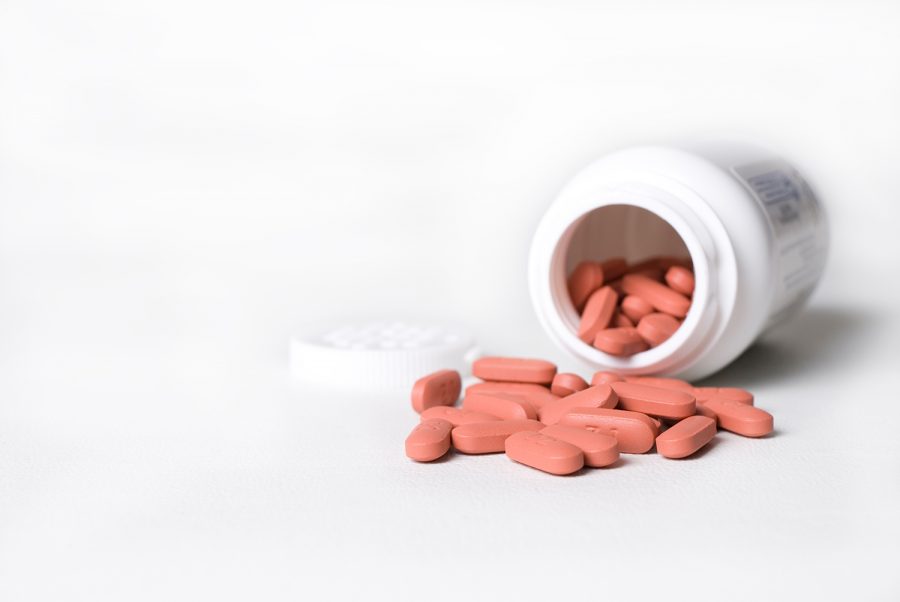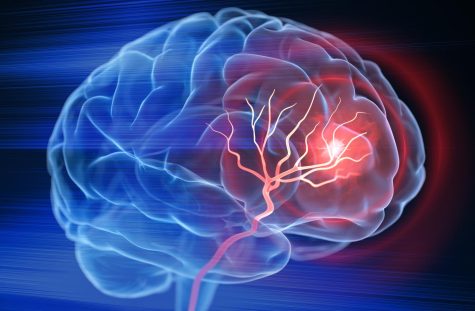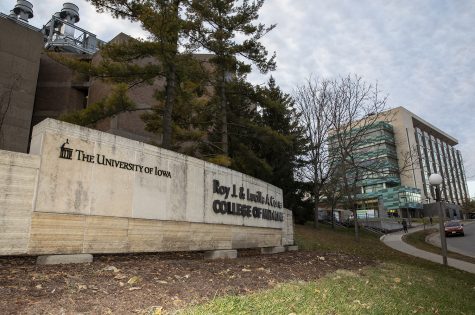Guest Opinion | The Doctor is In: Ibuprofen, Stomach Bleeds, and Kidney Dysfunction—what’s the link?
May 4, 2021
Ibuprofen is a common over-the-counter (OTC) and non-steroidal anti-inflammatory drug (NSAID) that is considered by many college students to be a miracle worker. It can be used to get rid of headaches after a long night of studying (or drinking), reduces fevers/inflammation, and much more. Like most things in life, moderation is key.
Taking excessive amounts of ibuprofen can cause serious, life-threatening side effects. In fact, several studies show that gastrointestinal (GI) complications resulting from NSAID use are among the most common drug side effects in the U.S. These GI complications range from minor stomach cramps to serious problems like stomach ulcers (open sores). Kidney impairment/failure among chronic NSAID users can also happen, but are less common.
To learn how this happens, let’s look at how Ibuprofen works….
How does Ibuprofen work its magic?
Ibuprofen works by inhibiting COX1 and COX2, enzymes that make chemicals called prostaglandins. Other OTC NSAIDs such as Naproxen and Aspirin work through the same mechanism as Ibuprofen. Prostaglandins contribute to pain, fever, inflammation, and other symptoms we associate with feeling “run down.”
So eliminating the chemicals that make us feel this way is obviously the solution, right? Not quite.
What happens if I take too much Ibuprofen?
Prostaglandins promote a natural reduction in stomach acid, increase blood flow to the stomach, and promote mucus secretion to the stomach lining. This helps protect the tissues of the stomach and GI tract from all the food/fluids we eat and drink.
When prostaglandin levels are decreased by ibuprofen, the stomach is more prone to irritation due to its acidic environment, making it more vulnerable to ulcers and stomach bleeds. This can often present as abdominal pain, stomach cramps, nausea, and vomiting.
In addition, prostaglandins help the blood clot by enhancing platelet clumping. Platelets help the blood clot faster when we are bleeding. By inhibiting prostaglandin production, platelets aggregate less frequently and can exacerbate bleeding from stomach/GI ulceration.
The same prostaglandins that protect the stomach also protect the kidney by promoting blood flow to it and increasing the efficiency of urine production. Inhibiting these functions can lead to kidney injury that can progress to kidney failure and associated signs/symptoms such as lower back pain, blood in the urine, decreased urine output, numbness in the legs, and confusion/dizziness.
So how should Ibuprofen be taken, and how much is safe?
Take ibuprofen with food/water to coat the stomach and protect it against the irritating effects of NSAIDs. Remember to take medications as prescribed by a healthcare provider or recommended by the drug manufacturer. Everyone reacts differently to NSAIDs, so it’s better to start at a low dose and see how you feel after.
Be sure to consult your primary care provider or local pharmacist for any questions you have about taking OTC medications. If you notice black/dark/red stools, abdominal pain, and/or back pain, immediately stop taking ibuprofen and seek immediate medical attention.
Riley T. Mohr, Third-year Pharmacy Student, Class of 2022
Vijayvardhan Kamalumpundi, First-year Medical Student, Class of 2024













